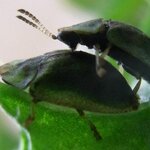
With the aid of a new immunosuppressive agent known as PIF (preimplantation factor), researchers at the World Health Organisation (WHO) Institute of Primate Research in Nairobi, Kenya, have successfully transplanted an ovary from one individual to another, even managing to restore a monthly cycle.
Approximately 11 percent of women worldwide suffer from premature ovarian failure. This can have many different causes: chemotherapy administered for a malignant disease might irreversibly damage the ovaries and, because of the advances in modern cancer therapy, the number of young women…

